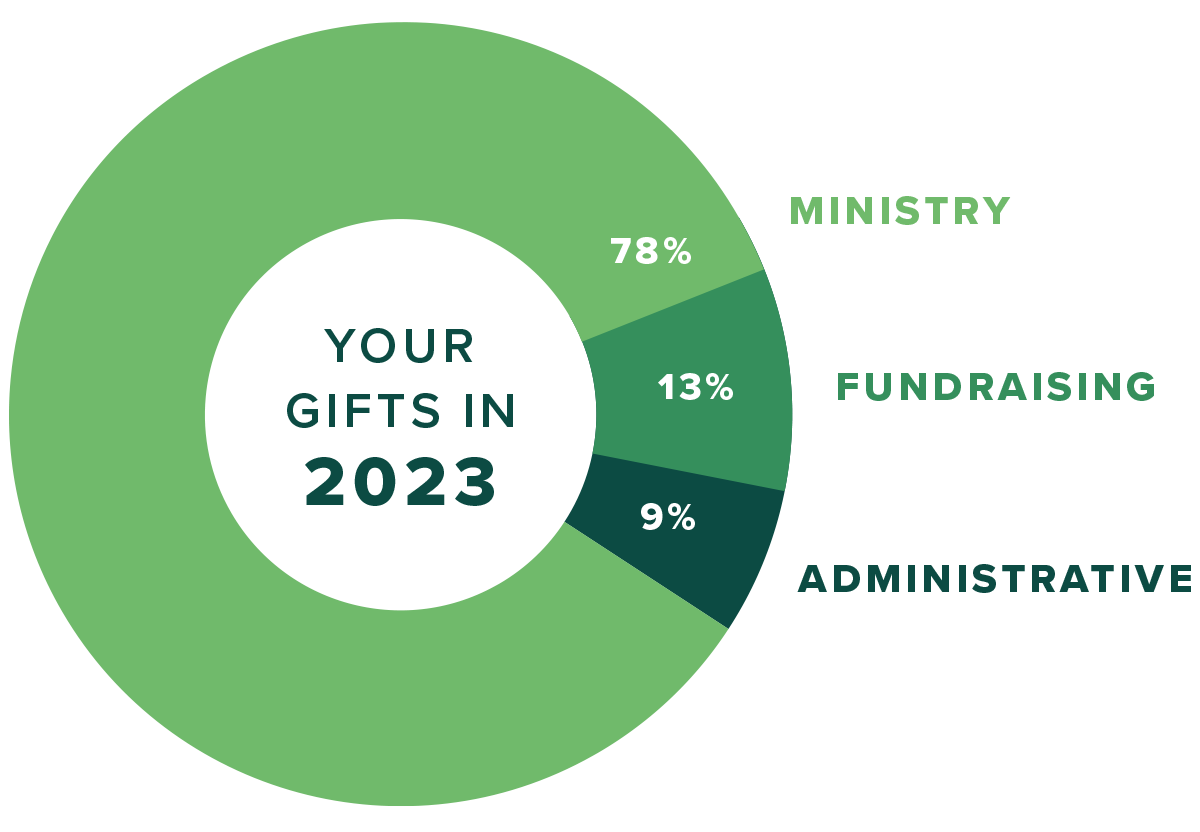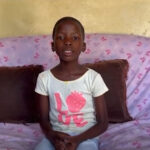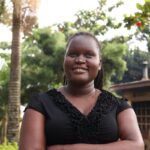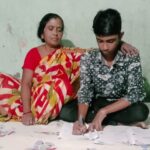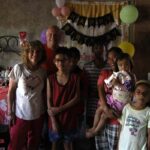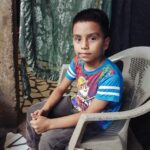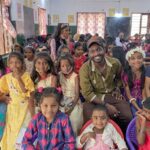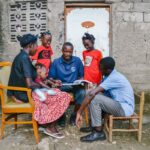A sponsored girl in Kenya had a natural talent as a seamstress, but poverty kept her dream of becoming a tailor out of reach. Then her Hope Center provided training and resources that rekindled her dream.
Hard places come in different forms. For most of the children in poor communities in Malindi, a town along the coast of Kenya, the lack of dreams is part of the hard in the hard place.
In addition to struggling to get basic needs like food, clothes, access to education, and proper shelter, many children in the communities where OneChild serves lack hope because of limited opportunities and a lack of vocational mentors to train them in new skills.
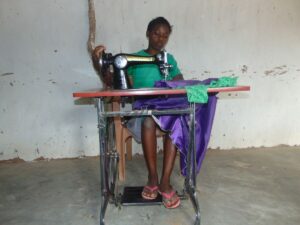
Sewing came naturally to Pendo.
Most of their families work menial jobs and earn very little income. The daily struggle to provide basic needs becomes their highest priority, leaving the kids with no one to help them achieve their full potential.
Pendo is a sponsored girl at Rehema Hope Center. She lives with her family in Sosobora village in Malindi.
Growing up, Pendo enjoyed repairing by hand her school uniform and her other clothes whenever they would tear. This was normal to her because her parents could not afford to easily replace her clothes when they got worn out, so Pendo figured she could repair them using thread and a sewing needle and still look beautiful in her clothes.
As time went by, she used her newfound passion to repair the worn clothes of her siblings. She says it gave her pleasure to see her siblings decently dressed despite putting on old clothes.
“It all started with repairing a loose hem of my school dress, then I realized I could repair more other parts,” she says. “I became happy because I knew no matter how old my clothes would become, they would never have holes. I would also rejoice at seeing my siblings walk around with decent clothes that are not torn.”
Her joy in sewing grew into a dream of becoming a tailor.
However, Pendo worried that her newfound love would never blossom into anything, despite wanting to learn more about sewing and tailoring.
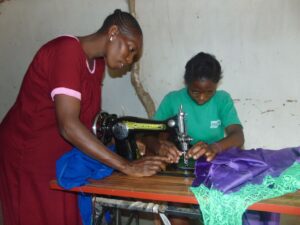
Pendo’s dream of becoming a tailer came closer to coming true when her Hope Center began offering tailoring skills classes.
Pendo knew very few great tailors in her village, and her hope of accessing a sewing machine was slowly fading away because the few tailors she knew were neither easily accessible nor would they allow a child close to their sewing machines.
To ease her worries, she stopped hoping that anything great would come of the sewing. This was until 2017 when her Hope Center introduced tailoring skills training.
Members of the church that hosts the Hope Center contributed money to purchase two sewing machines. Then Josephine, a teacher at the Hope Center, asked kids who were interested in tailoring to join her class where she began teaching them the skill.
“Teacher Josephine first taught us parts of the machine and how they worked in our first class,” Pendo says. “Then in the consecutive lessons, she taught us how to make a dress using paper. From sketching the design on paper to taking measurements and then cutting the paper into pieces to sewing it into a dress.”
After a few lessons of learning to sew using paper, they graduated to using different fabrics.
In 2021, the center hired Philista, a professional tailor, to help train the kids further. Philista has taught the kids how to make several other designs of dresses and other types of clothes.
“Every time I come to the Hope Center, I leave having learned a new skill. Teacher Philista is so kind and patient with us, everyone in our class likes her. She is not harsh when we miss doing something right the first time. This has made it easier for me to learn so quickly because I am not afraid to make mistakes,” Pendo says.
“I now know what I want to become in life, and I am confident I will achieve it because my teacher reminds me that I can be a great tailor in life.”
Pendo says the poverty in her community inspires her to want to become a tailor because many children in her village have old, ragged clothes and their parents cannot afford to buy or make new clothes for them.
“My parents, like most in my village, prioritize purchasing food which is most crucial. So most children have very old, ragged clothes because our parents buy the clothes once in a while and we are supposed to use them until when they can afford to get us new clothes,” Pendo says.
She hopes to become a seamstress in the future and also own a clothing design business where she hopes to make affordable clothes for young children in her community. She hopes that the clothes will o put a smile on a child’s face and give them hope.
“A new dress makes me happy, and most children are happy when they are given new clothes,” she says. “I hope that I can be able to make the clothes affordable to the parents so that the kids can wear a smile as they wear the clothes made with love.”
Your gift to the OneChild Partners Fund help us reach more kids living in poverty like Pendo, open more Hope Centers, and bring more hope to kids in hard places.
We are accountable to the children we serve AND to our donors.
Our accountability to our donors is one of our highest priorities. Our goal is to use the funds entrusted to us as wise stewards. To do this requires continued monitoring of our fund distribution. OneChild is also a member in good standing with the Evangelical Council for Financial Accountability (ECFA)
